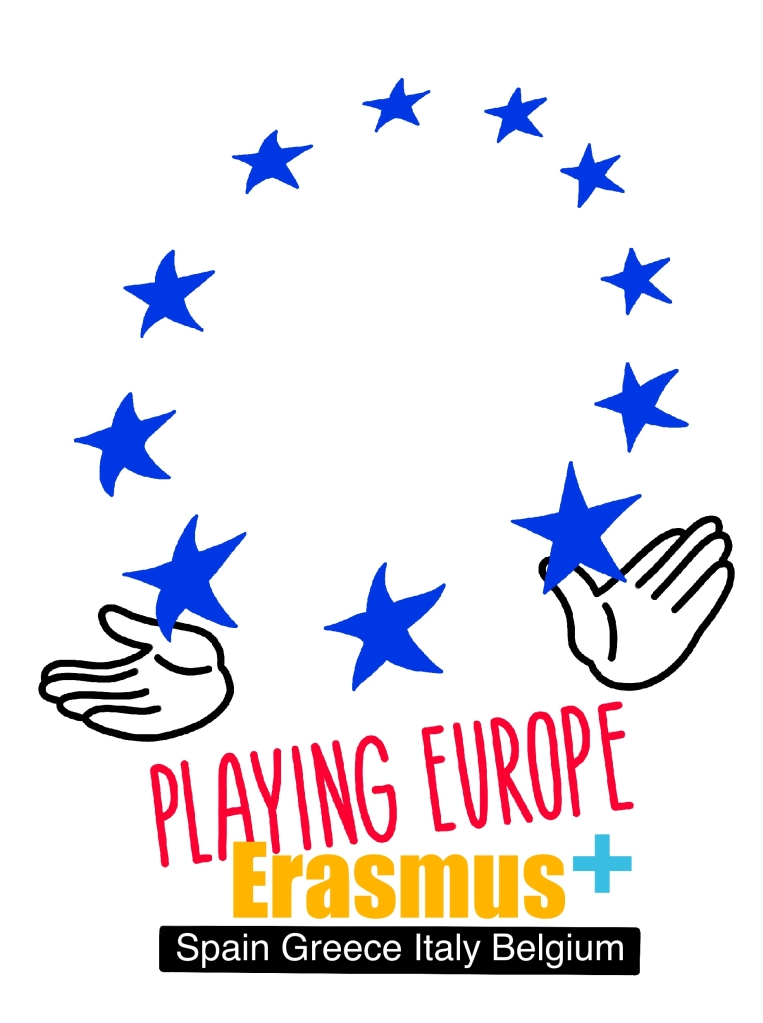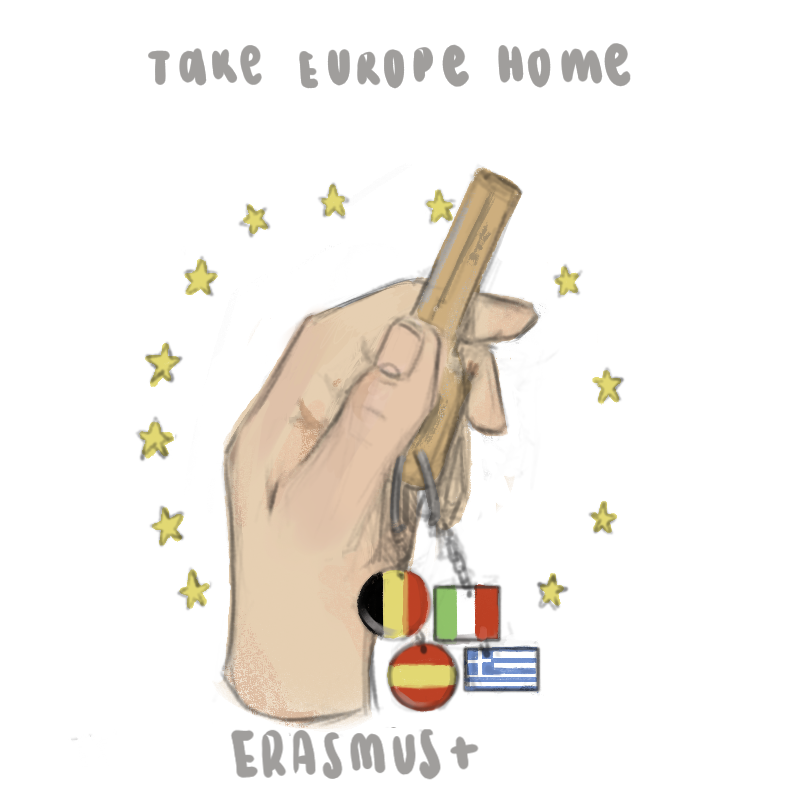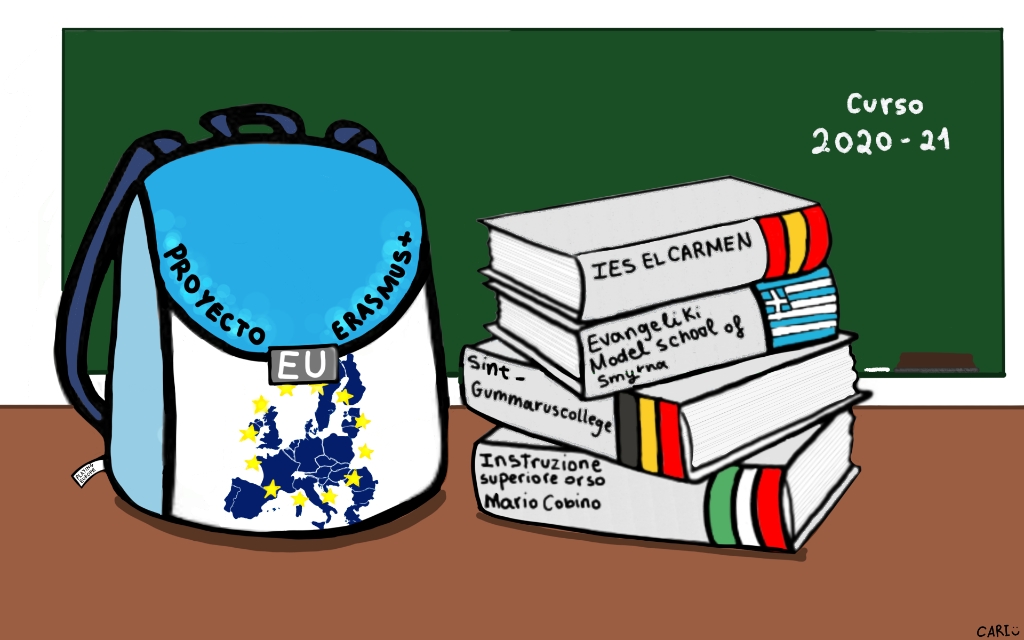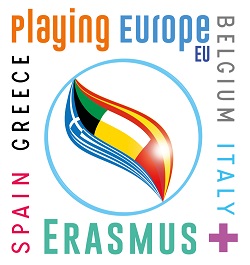
OBJECTIVES
• Acquiring new tools and strategies for dealing with diversity in the classroom.
• Learning about the European culture and history through our traditional games.
• Integrating traditional games and toys in the pedagogical process, especially as a measure to respond to diversity in secondary schools.
• Improving oral and written English skills.
• Enhancing soft and hard skills (communication, teamwork, collaboration, critical thinking, etc) through traditional games

MEETING ACTIVITIES:
“Presentation of traditional games”: The host country will present their traditional games. After the presentation there will practice some of those games.
“Our history”: Reproduce historical moments of their country, using toys and handicrafts.
“Teaching Unit”: Think of ways to introduce the games presented during the previous days in different subjects.
“Educational Visit”: Visit to Toy Industry business, traditional game association or other place related to the topic of the project.
“Integration in the host school”: Integration in the routine of the host school. Integration in the local classes, and observation of the differences and getting to know the host country.
“Presentation – Banquet”: An official presentation of the project to parents and stakeholders. Press, authorities,
inspectors, teachers from nearby schools and other relevant guests will be invited to this event.
“Playing Europe – The quiz”: Creation of multiple choice questions based on all the students have learnt during the week. Questions will be added to a quiz application for mobiles, created for this project.
The education landscape is evolving rapidly towards more modern methods, also known as blended learning. Several studies show the importance of games in the learning process and the pupils motivation. In this way, we hope to use them to deal with diversity in the classroom. Games also contain a cultural and traditional value in every EU country, which we can integrate in our teaching methods.
Gamification in the classroom is not yet widespread, since games tap into 21st century skills, like problem-solving, collaboration, negotiation, which do not necessarily constitute the bedrock of our current educational system. Therefore, our project ‘Playing Europe’ is in agreement with the Europe 2020 strategy, advancing the synergies, experience and knowhow between four partner schools.
Our partnership consists of four schools from Spain, Belgium, Italy and Greece. The participating students will be aged between 15 and 17 years old, of both genders, attending general education or vocational-technical high schools in their countries. The teacher team consists of a diverse group teaching varying subjects. At every exchange, each partner country will send six pupils and two teachers as delegates. This means that, over the course of two school years, a minimum of 24 teachers and 72 pupils will be able to take part in an exchange. In correspondence with the host country, the number of participants can be increased. All these people will take part in transnational learning activities and will be deployed to disseminate the newly acquired insights.

The following results are expected: a project website, videoblog for History class, development of games that can be used in various subjects and increase the pupils’ knowledge, commitment and motivation, a “Playing Europe – The Quiz app” and leaflets. The dissemination of project results is being organised, so they can be integrated in the curriculum o other schools and countries.
Other intangible results:
– Improved computer skills for pupils and teachers
– Heightened motivation for language learning in pupils
– By creating more active teaching methods, including games, we hope to increase learning motivation and reduce dropout rates.
– Improving teachers’ didactic skillset
– Raising pupils’ awareness regarding European citizenship
– Putting the schools on the map through dissemination
– Advancing internationalisation in both pupils and teachers
After 2 project years, the schools will not only establish a long-term partnerships to work on transnational educational projects, but will have developed additional knowledge, skills, experience and educational games, which can be applied in their classes. Through the website and the app, other schools will be able to consult and apply our games and historical teaching resources. In this way, our project encourages lifelong learning, which can contribute to the curriculum
of many European schools.
